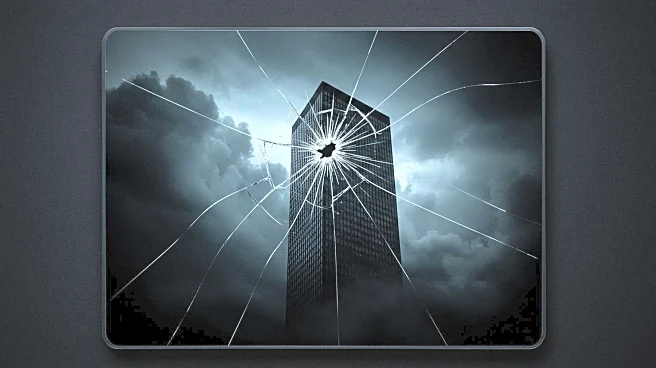What's Happening?
Charlie Brooker, the creator of 'Black Mirror,' has unveiled the storyline for the season 7 opener titled 'Common People.' The episode centers around a couple, Mike and Amanda, who adopt a lifesaving technology through the Rivermind app. However, the app's subscription model imposes financial burdens, reflecting corporate greed. Brooker incorporates the concept of 'enshittification,' coined by Cory Doctorow, to highlight how digital services degrade over time due to profit maximization. The episode features actors Chris O'Dowd, Rashida Jones, and Tracee Ellis Ross, blending bleak humor with dystopian themes. Brooker's narrative critiques the U.S. healthcare system's cost structure, contrasting it with the UK's free coverage. The episode ends with the couple's demise, but Brooker hints at revisiting the Rivermind universe in future seasons.
Why It's Important?
The episode's exploration of corporate greed and the degradation of digital services resonates with current societal concerns about technology's impact on everyday life. By drawing parallels to the U.S. healthcare system, Brooker highlights the financial strain faced by many American families, emphasizing the need for policy reform. The storyline serves as a cautionary tale about the consequences of prioritizing shareholder value over consumer welfare. It underscores the ethical implications of technology's role in healthcare and the potential for exploitation. The episode's themes may influence public discourse on corporate responsibility and the regulation of digital services.
What's Next?
Brooker's openness to revisiting the Rivermind universe suggests potential future episodes that further explore the implications of lifesaving technology and corporate greed. The introduction of a sequel in season seven indicates a shift towards expanding the 'Black Mirror' narrative universe. This could lead to deeper explorations of dystopian themes and their real-world parallels. As the series continues to evolve, it may prompt discussions among viewers and critics about the ethical dimensions of technology and its societal impact.
Beyond the Headlines
The episode's commentary on corporate greed and digital service degradation raises broader questions about the ethical responsibilities of tech companies. It challenges viewers to consider the long-term consequences of technology's integration into critical aspects of life, such as healthcare. The narrative may inspire discussions on the balance between innovation and consumer protection, as well as the cultural implications of technology-driven dystopias.








